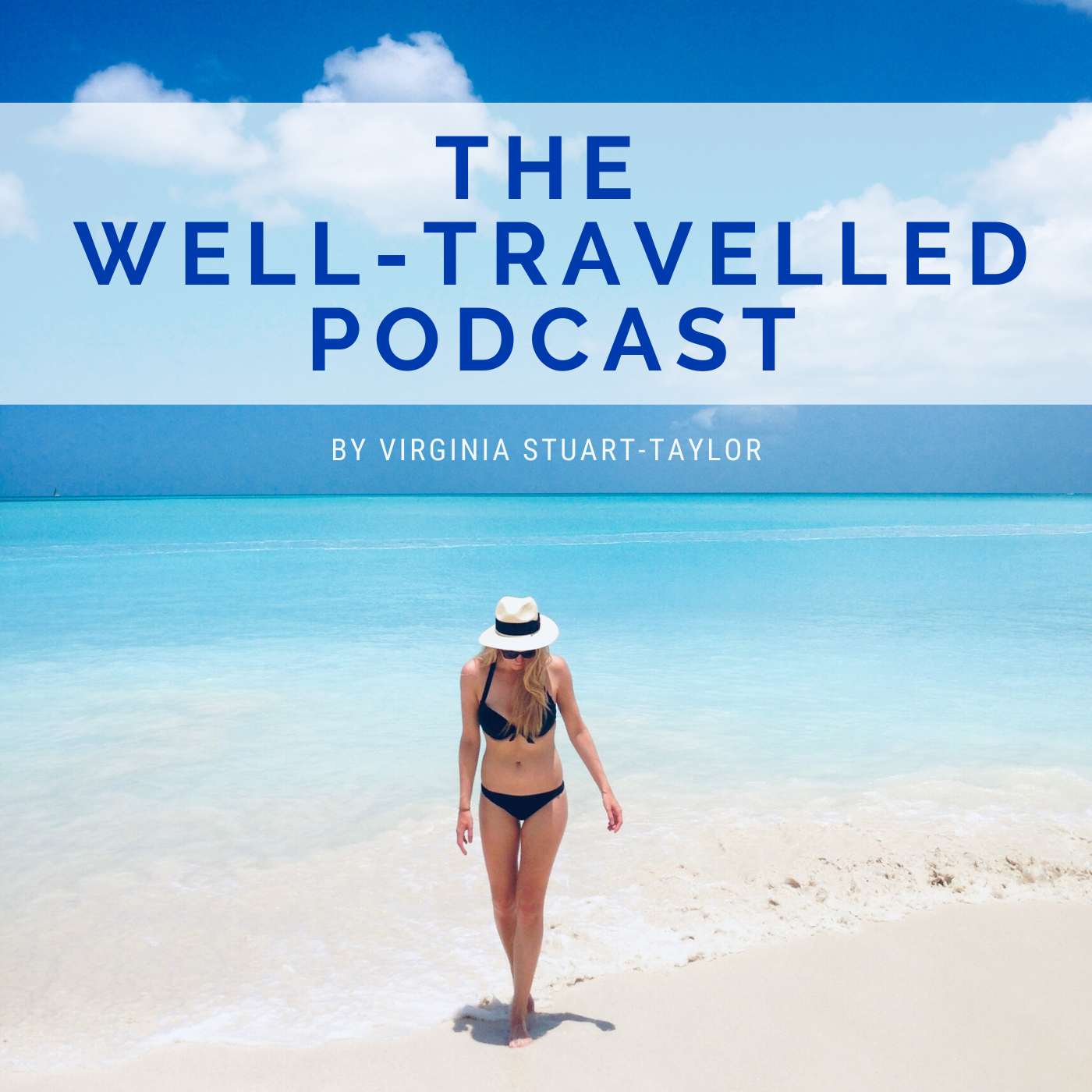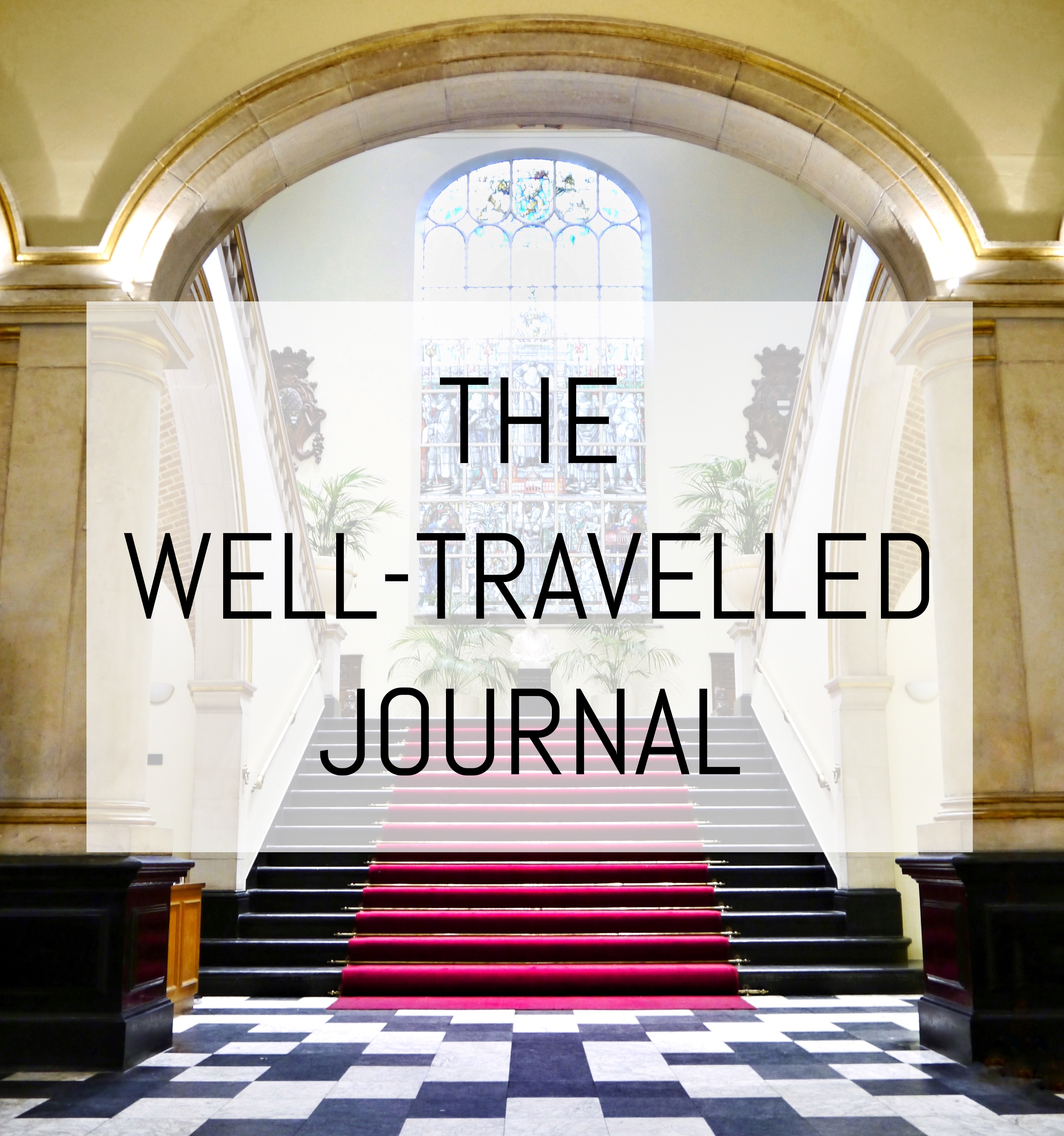Moving to Mexico!
Although I’ve barely arrived in Sweden and I’m still settling into my 2nd semester at the University of Uppsala, our whole cohort across Europe have already had to start planning the location for the next semester of our 2-year Master’s in European Society, Politics and Culture. Our options for the 3rd semester are pretty great, I won’t lie, with the freedom to go literally anywhere in the world. And in my case, I’m very excited by the news that I’ll be getting another taste of life outside of Europe, by moving to Mexico later this year!
So I’ve already found out my location for next semester, but I had to go through a lot of decision-making (which in my case therefore means lots of indecision…) and applications to find out where I’ll be going. I thought it might be useful to explain how the process works, for anyone interested in doing the same Master’s!
So what are all the different options offered by our Master’s for the 3rd semester?
- Research track inside Europe: My Master’s is run by a consortium of 8 universities in Europe, and in the 2nd semester (which I’m in now) all the students rotate round to a different university, studying slightly different topics, but all within the same broad subject. Back in October when I chose to study in Sweden, I wrote a blog post outlining all the options: in Spain, Italy, Germany, France, Poland, Czech Republic, Sweden and the Netherlands. Likewise then for my 3rd semester I could spend a semester studying (with a focus on research) in any of those 8, and I think my choice out of these 8 would have been Krakow in Poland, after I ranked it as my second preference back in October. Which country would you choose out of these 8?
- Research track outside Europe: My Master’s degree consortium also has 4 non-EU partner universities and it allows 20 students per year to spend their 3rd semester studying outside of Europe (out of a total of 100 students). Unfortunately only EU citizens can apply to study outside of Europe and non-EU students aren’t eligible, as the Euroculture Consortium provides an obligatory grant to EU students studying in these 4 universities. The idea of studying outside of Europe is to get a broader perspective on Europe’s role in the global context from outside the European bubble, by studying other parts of the world and the relationships between them and Europe. So the 4 partner universities are in:
- Mexico City, Mexico: Where I’m headed! In Mexico City I will be studying Latin American and Caribbean links to Europe in the 20th century, with a focus on topics such as the Cuban Revolution, global ageing, migration, cultural diversity and human rights. My main courses will be taught in English, but as I speak Spanish I’ll be able to choose some optional extra subjects too, most likely related to social movements, identity and political culture.
- Osaka, Japan: Osaka would have been my 2nd choice after Mexico, as I have already heard people rave about how fascinating Japan is. Osaka is Japan’s second largest metropolitan area after Tokyo and is not far from Kyoto. The course focuses on contemporary Japanese culture, Japanese society, the role of language in society, minority-majority relations and politics in Asia, and migration within Asia.
- Pune, India: Although I’ve never been to India and I would like to explore it properly one day, I spent 4 months of 2016 in Nepal and Sri Lanka, to the north and south of India, so I feel like I have recently had quite a lot of exposure to the Indian subcontinent and culture (and far too much rice!). Pune University is not far from Mumbai on the west coast and focuses on the relationship between India and Europe against the background of colonial history, looking at topics like multilingualism, multiculturalism, democracy and development, Indian perceptions of Europe and collective mobilisation.
- Indianapolis, USA: I am quite open in admitting my ambivalence towards the US. I’ve never lived in the US, but I have visited East and West coasts, Northern states and Southern states on various trips, so I feel like I’m justified in my ambivalence – it doesn’t spring from nowhere. So I personally wasn’t interested in studying in Indianapolis (which is near Chicago in the mid-West), but students there will study political science and choose courses from the Liberal Arts department (which basically means anything in the disciplines of Humanities and Arts: from American politics to Islam, literature to sociology, there’s a huge range of options).
- Professional track (anywhere): My Master’s also offers the opportunity to do a 4-6 month internship or work placement instead of an academic semester, and this can be done literally anywhere in the world as long as you can organise the placement and somehow show its link to the degree! During the placement you also have to prepare for your thesis and complete a report on your internship afterwards. The consortium doesn’t organise it for you, but can help in suggesting organisations for you to contact or apply for.
How did I end up choosing Mexico?
For the whole of my first semester I was convinced I’d choose the Professional Track, as I know how valuable the 6-month internship I did in Italy during my Bachelor’s was in getting into my graduate scheme afterwards. I was also really keen to spend more time living outside of Europe and I’ve long had my eyes on working in places like Brazil or Hong Kong.
After Christmas I started applying for a few different schemes and internships (such as the European Commission (Brussels), the British Council (London or worldwide) and the EU’s Representation to the UN (New York) and to look into various embassies worldwide (which however don’t offer visa support, so I was therefore ineligible). After all this I then had a change of heart. The vast majority of internships are unpaid and are mostly designed for students or graduates with little or no prior work experience, so they tend to give very little responsibility and autonomy to interns, for understandable reasons. When I applied for these internships, it suddenly dawned on me that I could likely end up very frustrated in an internship designed for someone far less experienced. I have 4 years’ post-university professional experience (with a salary) and I’ve lead a team of 13 people, so the idea of doing an unpaid, lower-level internship just started to feel really wrong for me. And I desperately wanted to live outside of Europe, but was struggling to find any internships that would offer me a working visa too. (On a side note, it was a sad premonition of what it will be like post-Brexit when we Brits will need working visas just to work in the EU!)
I also started remembering the other downsides of working life, like a Monday-Friday schedule, holiday restrictions, annoying office politics, etc. and I realised how much I treasure this opportunity to be a student again! This Master’s has allowed me a two-year escape from the working world, in which to enrich my brain, learn about subjects that really interest me and to research topics I consider important. In the stretch of my 40-year working career, when will I again have a whole 2 years to dedicate to learning?! I should really take advantage of this 2-year period to immerse myself in academia, and by studying solidly for 2 years I will be better prepared for any future academic pursuits. I’m not convinced I will ever do a PhD, but I don’t want to rule anything out…
By the time I had come to this realisation that I no longer wanted to follow the Professional Track, I had of course missed the deadline for applying to one of the 4 universities in Mexico, Japan, India or the USA. Just typical! Also very typically, it seemed like everyone around me had been accepted to the those 4 universities and was busy getting it all organised. Suddenly I regretted not applying and realised I really wanted to study in Mexico City.
Mexico was my first choice among those 4 universities for several reasons: I already speak Spanish. I love Latin American people and culture – they are just so friendly. I have not experienced nearly enough of Latin America, having only been to Chile and Cuba a whole 10 years ago and never since (!). I have several friends living in Latin America who I’d love to visit. I studied the history, society and literature of Latin America during my Bachelor’s and feel like I know a fair bit already. The subject matter at UNAM (la Universidad Nacional Autónoma de México) really interests me and the university is ranked the 2nd best in Latin America.
Feeling very irritated at myself for missing the deadline, I emailed the course co-ordinator to ask if there was any possibility… By a stroke of sheer luck (someone must looking down on me!) there was one place spare for Mexico City! I can’t explain the relief when I found out that I could go to Mexico after all. So here I am, preparing to spend 4 months this autumn living and studying in Mexico City!
I am not the best at decision-making. So the last month or so of worrying about where to move next and doubting the internship option have been a horrible nagging sensation in the back of my mind… So I am very pleased to now know that my 3rd semester is sorted and to know where I’ll be living from August until November 2017.
And what will Mexico City be like?
Mexico City is at 2,000m altitude so not too sweltering thankfully, around 20ºC during the months I’ll be there. It’s a huge city with 9 million inhabitants and it’s inland, around a 4-hour drive away from the east or west coasts. Excitingly I’ll also be there during the annual tradition of the Día de Muertos (Day of the Dead) on the 2nd November, which you can probably picture from the James Bond film Spectre.
I also want to travel around Mexico and the nearby countries of course, so I might perhaps spend a month or so backpacking around Central America afterwards. I would love to travel to Honduras to meet the young girl I’ve sponsored through Plan International for the last 2 years, I have friends visiting the Caribbean island of Antigua in November, and my sister is travelling to Peru so I’m hoping to join her to hike to Machu Picchu. In addition to all that, I have friends to hopefully visit in Brazil, and I’ve been wondering if Mexico might be the perfect occasion in which to do my long-awaited sail across the Atlantic Ocean (although the timing’s not great weather-wise)…
And then getting even further carried away, I was thinking I could continue further west around the world to visit schoolfriends of mine who live in Australia, perhaps popping over to New Zealand and the Philippines as well, before finally circumnavigating the globe and returning to Europe in January / February 2018 in time to start my 4th and final semester (which is effectively just writing my thesis).
As you can see – my imagination has slightly run away with me! And my brain likes to conveniently ignore the cost aspect of all this as well. But at least the ideas are down on paper and we’ll see if any of them actually happen. But it’s all extremely exciting and a relief to know roughly what I’ll be doing with the rest of 2017.















Mexico is the country I would go for as I find myself interested in Latin American culture and language. Osaka could be another choice since I was on one year exchange programme in Japan and really enjoyed it.
LikeLike
I would love to go to Japan or India, but the subjects in Mexico City are by far the most interesting! Good luck. 🙂
LikeLike
Thank you Elena!
LikeLike
How exciting! I’m currently doing an English assistant placement in the tiny city of Colima, about 8 hours west of MX. My main tip would be don’t be too overambitious with your planning and don’t try and fit too much in or you’ll end up missing stuff out! Every state in Mexico is like a whole country in Europe so take into account the distances and the cost of travel. Don’t miss Sayulita, Guanajuato and Oaxaca, Yucutan Peninisula, Chiapas… You’re going to completely fall in love with Mexico, it will surprise you daily! Good luck with it! 🙂
LikeLike
That is really great advice actually, as I would otherwise have definitely been overambitious with my travel plans, and thanks for those tips! I hope you’re enjoying your placement in Colima!
LikeLiked by 1 person
No problem! Hope Mexico treats you as well as it has me!
LikeLike
I had a 6 hour stop-over in Mexico city on my way back from South America last year, and it was love at first sight. It is BUZZING, the people were so friendly, it was unbelievably cheap, and of course THE FOOD.
It is developed and has everything you can find in a vibrant European city but it’s , which of course makes its that bit more exciting… I never expected a layover to be so much fun and I know I only scratched the surface y TENGO GANAS DE VOLVER!
I’m looking into teaching there after my masters so I look forward to your updates. I would have also chosen Krakow out of the European options so I trust you’ve got good taste 😉
LikeLike
This is great to hear and yes I’m also super excited about the Mexican food! How exciting you’re thinking of moving there to teach – I hope my posts from Mexico this autumn will give you a good idea of what to expect!
LikeLike
Enhorabuenaa. My name is Irene and I have been accepted at the university of Groningen to your master, for the next year. I hope you don´t mind if I ask you how it works the selection process to receive one of those scholarships to go abroad of Europe. I would like to take the academic field and the possibility of going to one of those universities really attracts me. By the way, I would like to ask you thousand of questions about the master, as you are the first person that I know is currently doing it. What it is sure that I will do is reading your blog, thanks for the motivation and the inspiration, it has helped me a lot.
LikeLike
Congratulations Irene on getting accepted onto the course and I’m glad my blog posts have been so useful to you! You’ve made an excellent choice with Euroculture, as I’m really enjoying the course so far! Regarding the mobility outside of Europe, there are around 20 places each year, and each one comes with a grant (although it won’t cover your entire 4 months, it’s definitely helpful in paying for the flights and some of your living costs). So if you get a place in a non-EU university, you automatically get the grant. It’s a great system! Good luck in getting ready for the move to Groningen and enjoy!
LikeLike